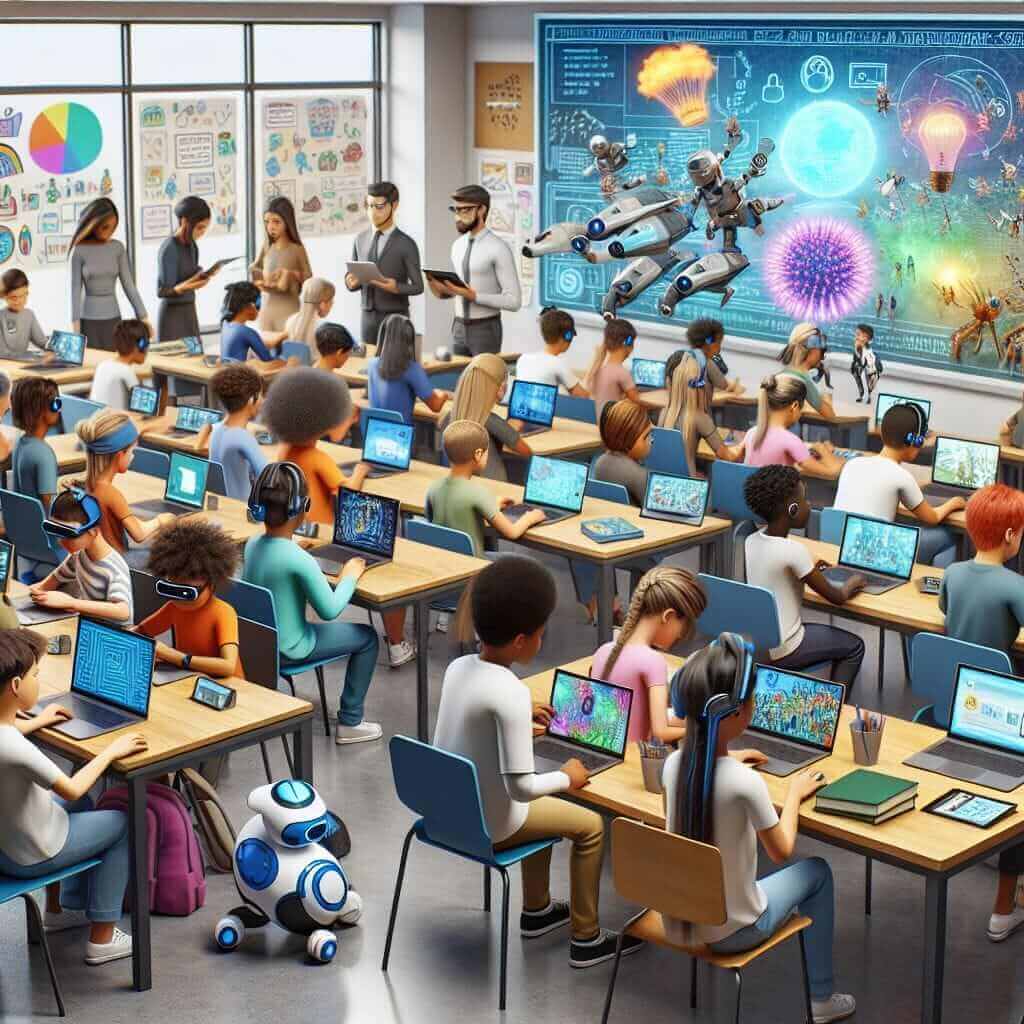“The impact of educational technology on student outcomes” is a popular topic for the IELTS Writing Task 2, particularly in our increasingly digital world. Understanding the nuances of this topic and how to effectively articulate your thoughts in an essay format is crucial for achieving a high band score.
This article provides a comprehensive guide to tackling IELTS Writing Task 2 questions on the impact of educational technology, equipping you with the necessary tools and knowledge to excel. We’ll delve into potential essay questions, dissect a sample question, provide a band 8 model essay, and highlight essential vocabulary and grammar points.
Potential IELTS Writing Task 2 Questions
Here are some potential essay questions you might encounter related to this topic:
- To what extent do you agree or disagree that educational technology improves student learning outcomes?
- Discuss the advantages and disadvantages of integrating technology into education.
- Some believe that traditional teaching methods are obsolete in the digital age. Do the benefits of technology in education outweigh the drawbacks of moving away from traditional approaches?
Sample Question & Analysis
Let’s choose the first question for our analysis and model essay:
To what extent do you agree or disagree that educational technology improves student learning outcomes?
Analysis:
- Type: Opinion Essay (Agree/Disagree)
- Keywords: Educational technology, student learning outcomes, improve
- Focus: You need to present a clear stance on whether educational technology enhances student learning outcomes.
Model Essay
While traditional teaching methods remain valuable, I strongly agree that educational technology has the potential to significantly improve student learning outcomes. This essay will discuss how technology facilitates personalized learning, expands access to knowledge, and prepares students for the future, ultimately leading to better academic performance and skill development.
Firstly, technology enables personalized learning experiences tailored to individual needs and learning styles. Adaptive learning platforms and educational software can assess students’ strengths and weaknesses, providing targeted exercises and feedback. This personalized approach ensures that students learn at their own pace and receive the specific support they require, leading to a deeper understanding of concepts.
Secondly, educational technology grants access to a vast pool of information and resources beyond traditional textbooks. Online libraries, educational videos, and interactive simulations expose students to diverse perspectives and global knowledge. This accessibility fosters curiosity, encourages independent learning, and equips students with the skills to navigate the digital world effectively.

Furthermore, integrating technology into education prepares students for the demands of the 21st-century workforce. By developing digital literacy skills, problem-solving abilities, and online collaboration strategies through technology-based learning, students are better equipped to thrive in today’s technology-driven society.
In conclusion, while traditional teaching methods remain relevant, the integration of educational technology offers significant benefits that can dramatically improve student learning outcomes. From personalized learning to expanded access to knowledge and future-ready skills, technology empowers students to reach their full potential. (Word Count: 281)
Notes for Writing
- Clear Structure: Use a clear essay structure (introduction, body paragraphs, conclusion) to organize your ideas effectively.
- Balanced Argument: While expressing your opinion is crucial, acknowledge opposing views and address them logically.
- Examples: Support your arguments with relevant examples of educational technology and their impact on student learning.
- Formal Language: Maintain a formal tone throughout the essay, avoiding contractions or colloquialisms.
Vocabulary
- Facilitates: (verb) /fəˈsɪl.ɪ.teɪts/ – Makes something easier.
- Personalized Learning: (noun) /ˈpɜː.sən.əl.aɪzd ˈlɜː.nɪŋ/ – Tailoring education to individual student needs.
- Adaptive Learning Platforms: (noun) /əˈdæp.tɪv ˈlɜː.nɪŋ ˈplæt.fɔːrmz/ – Software that adjusts to student performance.
- Global Knowledge: (noun) /ˈɡloʊ.bəl ˈnɒl.ɪdʒ/ – Information and understanding from around the world.
- Digital Literacy: (noun) /ˈdɪdʒ.ɪ.təl ˈlɪt.ər.ə.si/ – The ability to use technology effectively.
Conclusion
Mastering the topic of “The impact of educational technology on student outcomes” is achievable with focused practice and a clear understanding of the key arguments. By utilizing the insights, vocabulary, and model essay provided in this article, you can confidently approach IELTS Writing Task 2 questions on this subject and enhance your chances of achieving your desired band score. Remember to practice regularly, analyze your strengths and weaknesses, and seek feedback to continually improve your writing skills.